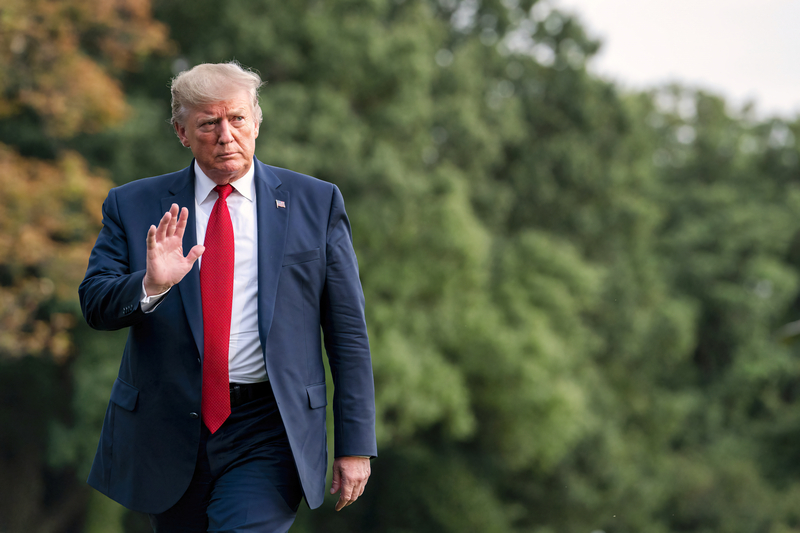
In the wake of the elections in November, the shocking event that unfolded over the weekend has gripped the nation: an assassination attempt on the former President Donald Trump. This occurrence not only underscores the charged political atmosphere in the United States but also raises imperative questions about the country’s current state of unity and security. The incident, transcending mere political rivalry, has unveiled the depths of polarization gripping America, making it a critical moment for introspection and evaluation of the nation’s democratic foundations.
As we delve into the details of the assassination attempt, we will explore the immediate political ramifications that this event has triggered within the political landscape of the United States. Further, we will assess the media and public response, illuminating the varied perspectives that have emerged in the aftermath. The conclusion will strive to weave these insights into a coherent narrative, offering a contemplative look at what this incident means for America moving forward, and how it reflects upon the broader implications of the elections. This comprehensive examination aims to provide readers with a thorough understanding of the current political dynamics and their long-term implications for American democracy.
Assassination Attempt
Description of the Incident
The assassination attempt on Trump occurred during a campaign rally at Pennsylvania’s Butler Farm Show, where Donald Trump was addressing a large crowd. Minutes after he began speaking, a gunman fired six to eight rounds from an AR-style weapon from a roof approximately 400 feet away. The Secret Service quickly intervened, with a sniper neutralizing Crooks, and Trump was rapidly escorted off the stage, visibly injured.
Who was the Shooter?
Thomas Crooks, a 20-year-old from Bethel Park, Pennsylvania, emerged as the shooter. He was a recent high school graduate and registered as a Republican voter. Interestingly, he had also made a small donation to a Democratic-aligned group. Crooks was not previously known to law enforcement, and his political motives were unclear at the time of the incident. His family has been cooperating with the ongoing investigations.
Security Breaches and Investigation
The incident highlighted significant security lapses. It was surprising that Crooks could scale a roof with a clear line of sight to the stage without being detected sooner. Witnesses reported alerting the authorities about Crooks’ suspicious activities, but there was a delay in the response. The Secret Service and FBI are now scrutinizing the communication and coordination during the event to understand the breakdown and prevent future occurrences.
Political Ramifications
Influence on Trump’s Campaign
The assassination attempt has significantly impacted Trump’s campaign, particularly as it occurred just before the Republican National Convention. This event is likely to intensify the emotional energy among his supporters, potentially increasing voter turnout. Trump’s response on social media, urging resilience and defiance, may further galvanize his base, portraying him as a steadfast leader in the face of adversity.
Impact on Biden and the Democrats
The Biden campaign has taken a cautious approach in response to the assassination attempt, halting all campaign ads and communications temporarily. This reflects a strategic pause, emphasizing unity and condemning political violence. The campaign plans to resume its activities with a clear message against such violence, aiming to differentiate itself by focusing on responsible rhetoric and leadership.
Changes in Public Sentiment
The assassination attempt has also influenced public sentiment, highlighting deep divisions within the country. Immediate reactions included a mix of shock, anger, and polarization. The incident has underscored the volatile political climate and may lead to increased scrutiny of political rhetoric and its potential to incite violence. Public discussions are now more focused on the implications of such acts for American democracy and the need for a tempered political discourse.
Media and Public Response
Social Media Reactions
The assassination attempt sparked a whirlwind of reactions on social media, reflecting the nation’s deep divisions. Prominent figures like Steve Kerr voiced concerns over the gun culture and political discord, urging for national unity. Meanwhile, the incident ignited a flurry of accusations and conspiracy theories, with some Republicans swiftly blaming President Biden and his allies, intensifying the partisan atmosphere.
Political Expert Opinions
Experts have highlighted the dangerous escalation of political rhetoric, noting that such incendiary language could have contributed to the violent act. Mike Johnson, a Republican, emphasized the need for a thorough investigation, suggesting that the American people deserve transparency about the incident’s circumstances. This call for clarity reflects a broader concern about the impact of toxic political environments on national security.
Influence on Voter Behavior
The shooting’s timing, just days before the Republican National Convention, has undoubtedly placed it in a highly charged partisan context. The immediate and intense public and political reactions are likely to influence voter behavior, potentially polarizing voters further. As the campaign resumes, the focus on political violence and its condemnation could become central themes, affecting voter perceptions and decisions as they head to the polls.
Conclusion
The assassination attempt on Trump represents a pivotal moment in the landscape of American politics, illustrating the depths of the nation’s polarization and the urgent need for a unified approach to safeguard democracy. Through examining the immediate aftermath and broader implications of this act, it becomes evident that political discourse and division have reached a critical juncture. Reflecting upon this incident provides a somber reminder of the fragility of civil discourse and the paramount importance of addressing the underlying tensions that persist within the United States.
As America moves forward, it is crucial to embrace a path of reconciliation and understanding, focusing on the collective values that define the nation rather than the divisions that diminish it. This event not only calls for immediate actions to ensure the security and unity of the country but also underscores the significant impact of political rhetoric in shaping the national climate. Ultimately, this situation demands a renewed commitment to civility, dialogue, and the strengthening of democratic institutions, to navigate through these turbulent times and forge a more cohesive future for all Americans.
SEE ALSO: How NIL Deals Influence College Sports Recruitment












